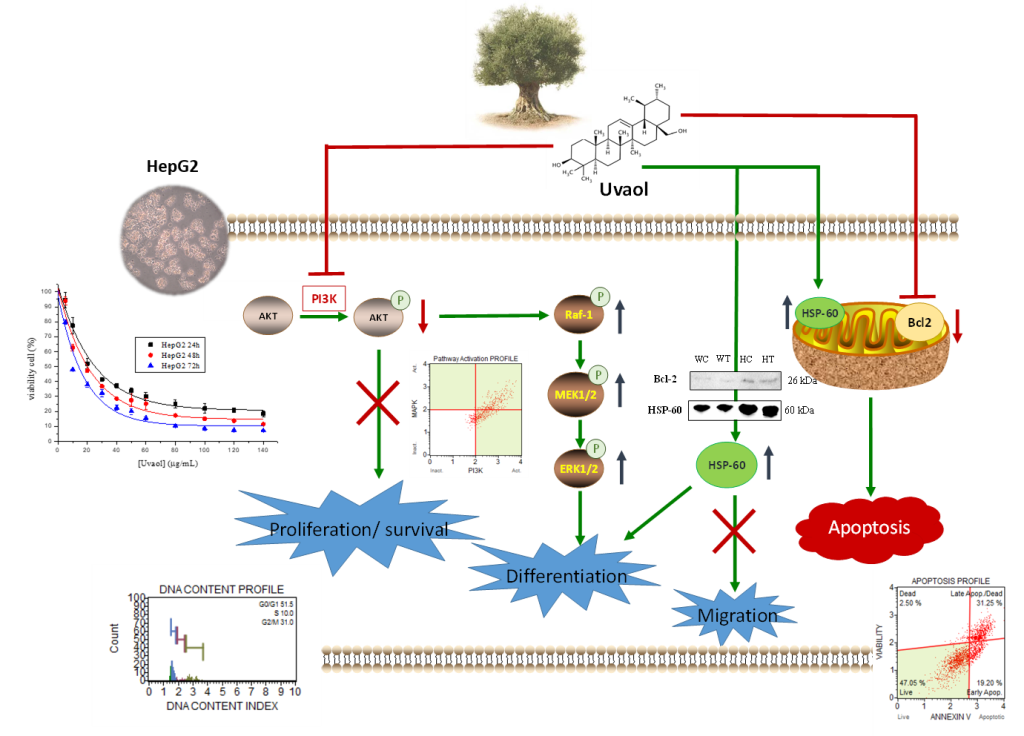Natural products have a significant role in the development of new drugs, being relevant the pentacyclic triterpenes extracted from Olea europaea. Anticancer effect of uvaol, a natural triterpene, has been scarcely studied. The aim of this study was to understand the anticancer mechanism of uvaol in HepG2 cell line. Cytotoxicity results showed a selectivity effect of uvaol with higher influence in HepG2 than WRL68 cells used as control. Uvaol presented anti-migratory capacity in HepG2, supported by the morphological changes and higher HSP-60 expression. This compound also induced arrest in G0/G1 phase and an increase in apoptosis rate. These results are supported by decreased Bcl-2 expression and down-regulation of AKT/PI3K signaling pathway. A reduction in reactive oxygen species levels in HepG2 cells was observed. Altogether, results showed anti-proliferative and pro-apoptotic effect of uvaol on hepatocellular carcinoma, constituting an interesting challenge in the development of new treatments against this type of cancer.

